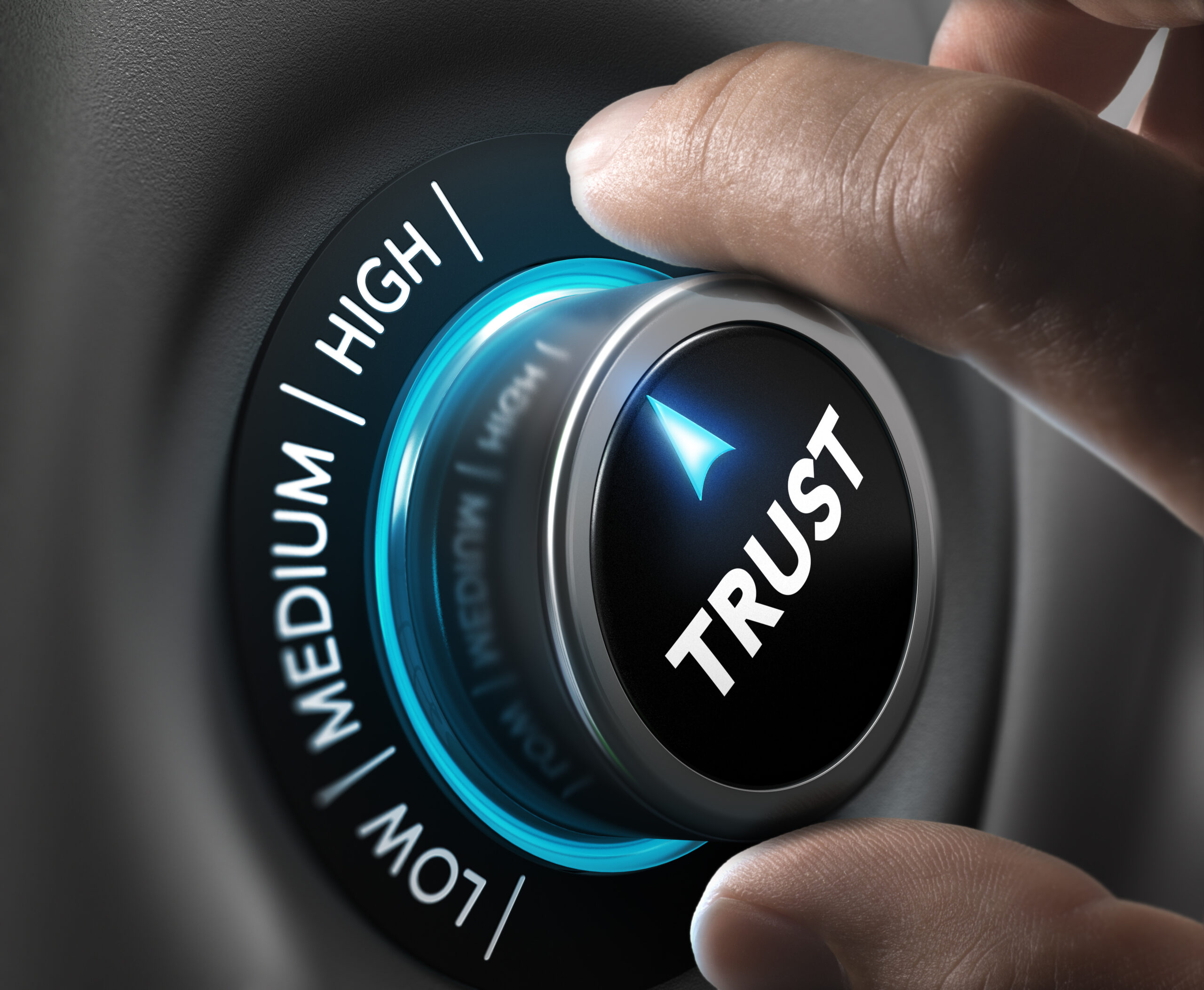This is Part 1 of a series on building trust: “No Trust, No Relationship, No Money.”
Trust is the core building block of all relationships. Yet many donors do not trust the organizations they give to or the people they relate to in those organizations.
Recently, I’ve been wondering why.
And then it dawned on me that as MGOs, Development Directors, and CEOs of non-profits, we don’t spend enough time looking at what it is about us, our systems, and our organizations that has broken trust with our donors. And we are paying a heavy price for it.
This reality, coupled with a wonderful book by Stephen Covey called “The SPEED of Trust: The One Thing That Changes Everything,” motivated me to write this four-part series on the role of trust in major gift fundraising. I highly recommend this book and suggest you put its principles into practice. It will change the way you manage yourself and your major gift work.
Now, Jeff and I have consistently talked about the importance of living a life of authenticity, integrity, and congruity on this blog. And in our relationship, we regularly hold each other accountable in these areas. It is painful, at times, but we welcome it. Why? Because it produces a relationship of trust. And trust is the glue that holds all relationships together.
It’s interesting that many of our good colleagues in major gift fundraising believe the path to getting the money is simply to just go for it. Reach out and get it! Grab it! And they are forced into this behavior either through a belief that it is the right way to get the money or because a manager has led them down that path.
This approach is wrong and hurtful. It ruins relationships and breaks down trust. And while it may result in getting some money in the short term, it compromises the relationship with the donors and hurts the long-term ability of the MGO to secure the funds for the cause.
We need to get back to building trust with donors. It’s not easy, but I think there’s a cure for this malady and that is what I intend to address in this series.
Let’s begin with a story of self-trust.
I sat in her office and listened to her story. She was a seasoned MGO who over the last four years had, in mostly subtle ways, been talked down to, made small and “put in her place.” It had stolen her spirit. And she had lost the brilliant spark and drive she once had. She had lost self-trust.
It was sad to see.
At one point she broke down and cried. She said: “You know, Richard, I’m not the same person I was before. I used to be confident. I used to trust my instincts and abilities. And now I am unsure and anxious. I am filled with fear. And I’m not happy.”
I was angry.
I was angry about the system and people who had torn this good woman down. And the conversation reminded me of my own painful journey of building self-confidence and trust – a journey that took me to many places over decades of work.
And here’s what it all comes down to: If you don’t in some measure have your stuff together, it will be very difficult to relate to a donor and build trust.
There is an unavoidable link here that you must pay attention to, if you are to be successful in building trust with donors.
Jeff and I have talked quite a bit about the special relationship the organization and the MGO has with a donor. The whole major gift effort is primarily about walking with that donor and helping him or her fulfill their interests and passions through their giving. It is a relationship built on trust.
-
Trust that you are telling the donor the truth.
-
Trust that you have the donor’s best interests at heart.
-
Trust that you really do care about the donor, not just their money.
-
Trust that the money will be used as you have said it would.
-
Trust that after you get the money you will still talk to the donor with the same level of attention and warmth as before you got it.
But if you, as an MGO, are living in a place of fear and lack of confidence, how can you possibly build trust with a donor? You can’t. At least not to the degree you should – because fear and self-doubt have a way of turning things around. And that’s why this whole building trust thing starts with you.
As I’ve gotten older – I’m 74 now – I’ve realized how horribly lost I was on this topic. I’m still not out of the woods, but I am getting there. I now realize that I can be good at something, but if the other person doesn’t trust me, the whole thing doesn’t work. So now I focus on being good at the things I am good at AND behaving in a trustworthy manner. Both efforts matter.
In the major gifts field, you can be an amazing MGO, but if you operate with a mentality of “the ends justify the means,” your success will be limited. That is why you must start with yourself when it comes to the topic of trust. But how does it work and where do you start?
As Stephen Covey states in his book, the development of self-trust goes along the following path:
- It starts with integrity – being a person that is authentic, congruent, and self-aware.
- It moves to intent where your motives contain genuine concern for people, purposes, and society; where your agenda is to seek mutual benefit, not just yours; and where your behavior integrates motive and agenda in how you actually behave.
So, to get started on this journey of building self-trust, I would ask you, just like I ask myself and how Jeff and I ask each other – I ask you: “Who are you in integrity and intent?”
When you are dealing with donors, who are you? Are you a person that speaks with authenticity to the donor? Is it your intent to uncover mutual benefit that is driven by a concern for the donor?
Spend some time on this. If you’re like the rest of us, you will find there’s some work to do.
And if you’re experiencing anything like the situation of the MGO I talked about at the beginning of this blog, where you have lost trust in yourself, your capabilities, or your contribution, please get out of that destructive place as soon as you can. And find a friend, colleague or professional who can walk with you. This major gift work is way too hard to navigate with the extra burden of negative, destructive, or abusive managers and cultures.
And if your culture is a healthy and supportive place, it’s always good to be aware of the connection between self-trust and your relationship to your good donors. Keep thinking about this so you can be the person you need to be for yourself and for them.
Richard
This is Part 1 of the series: No Trust, No Relationship, No Money.
Read Part 2 – The Fish Stinks From the Head: Warning Signs of an Untrustworthy Non-Profit





0 Comments